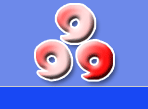| 1 2
3 4
5
Introduction of beta-1,3-Glucan from yeast
The origin of Beta-1,3-D glucan derived from the cell wall of baker's yeast by novel enzymetic
and green chemistry means( Xinguang Chemical company LTD.patent pending). There are certain evaluation for safety of Beta-1,3-D glucan supported by the historical and scientific investigation on this substance.
-----●Beta-1,3-D glucan is regarded harmless food by FDA which refers to this substance as ----------"mechanically ruptured cells of selected strain of yeast, Saccharomyces Cerevisiae" and the -----substance is affirmed as GRAS (Generally Recognized as Safe).
-----●Tulane University of Medicine proved that the baker's yeast Beta-1,3-D Glucan had no ----------acute and clinic toxicity in their investigation for safety evaluation which was performed in ----------1988.
----(ImmuNet's Archive Ref #2711-0001)
-----●In 1994, Beta-1,3-D glucan was resulted as safe in Phase II clinical study with 67 patients --------who underwent major surgical operation.
-----(ImmuNet Archive Ref #2711-0010)
-----●In 1994, Another study group concluded in their Phase I and Phase II clinical study with 34 -----patient who underwent major surgical operation that Beta-1,3-D glucan is safe and has no --------adverse experience.
------(ImmuNet Archive Ref #2711-0011)
Specifically, beta-glucans may help to:
Reduce the risk of coronary heart disease by lowering blood cholesterol levels. Glucans that are soluble in water (such as a form called 1,6 glucans, which are extracted from whole oats) can help to reduce cholesterol levels when consumed as part of the healthy low-fat diet.
Enhance immune-system power. Beta-glucans appear to indirectly intensify the immune system's ability to fight off infection, apparently by activating certain white blood cells called macrophages. This has been shown in laboratory tests. Produced by the bone marrow, macrophages patrol the body, gobbling up such foreign invaders as bacteria and fungi. Macrophages must be stimulated (or "activated") in order to become functioning members of the immune system's A-Team. However, whether or not this activation by beta-glucans actually alters the outcome of any specific condition has yet to be proven.
-Protect against cancer and the development of tumors. Cancer researchers are conducting a variety of clinical trials to determine whether beta-glucans can boost the ability of the body's immune system to kill cancer cells. In one laboratory study, antibody medications were more effective in killing cancer cells when they were given in conjunction with beta-glucans. A number of follow-up clinical trials are under way.
|


